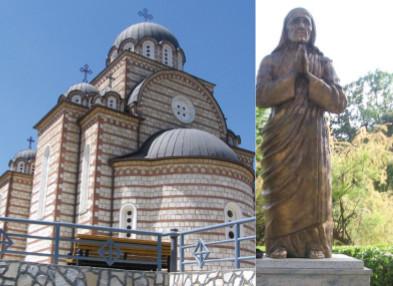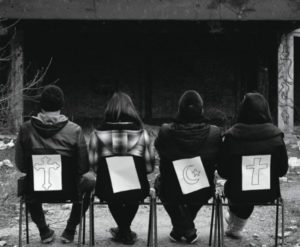Facts1
- Kosovo declared its independence in 2008 and is now recognized by the USA and many EU nations; however, Serbia still does not recognize it because of its perceived importance to their spiritual and national identity.
- Kosovar Albanians number about 92% of the population; the Serbian minority shrunk to around 100,000 after the war in 1999.
- Religious affiliation is largely Muslim at 95% with Christianity in the minority: Catholic-2.2%, Orthodox-1.48%, and less than 1% Protestant Evangelical (Several municipalities having a Serbian majority did not participate in the 2011 survey—therefore the Orthodox percentages are low.)
- 28% of Kosovo’s population is younger than 15; half of the population is younger than age 28.
Although Kosovo’s inhabitants are largely Muslim, a visitor will still see diverse religious symbols dotting the landscape: large statues of Mother Theresa, ornate Serbian Orthodox monasteries and churches dating from the Middle Ages, and over 800 mosques. The small country of around 2 million faces high rates of poverty, unemployment, and corruption, and although recent diplomatic progress has been made at a state level, relationships between Serbians and Albanians continue to be quite tense.

Kosovo law officially recognizes five religious communities: Islamic, Serbian Orthodox, Catholic, Jewish, and the Protestant Evangelical Church. Because the government required evangelical churches to come under one governing body in order to be officially recognized, Kosovo Protestant Evangelical Church (KPEC) was formed, now comprised of 40–50 churches. The small evangelical community faces many challenges in the predominately Muslim country. Artur Krasniqi, pastor of one of the larger evangelical congregations in Kosovo, describes the dominant mentality in Kosovo as “communist combined with Islamic.” According to Krasniqi, after so many years of occupation, Albanians became used to religiously “performing” for whoever was in power. Others describe the difficulty in evangelizing when there is an immediate association between Christianity and Serbia—thus inflaming war memories and years of tension. On the other hand, although in Serbia the Orthodox Church perceives the evangelical community as a “sect,” in Kosovo, they are much more tolerant since evangelicals are converting Muslims to Christianity.
It is a critical time for evangelicals in the young nation of Kosovo—several evangelical leaders noted a rise in political Islam as other nations send money and resources in order to influence the religious climate. More powerful nations such as Turkey are attempting to increase economic and political capital. It can often be a struggle for evangelicals to access their lawful rights in a local context depending on the leadership’s inclination. In this critical time, however, evangelicals are actively engaging their Muslim neighbors in various ways—through hosting dialogue events in churches, service projects, and evangelistic outreaches. These efforts have “variable” results, depending on an individual village’s orientation toward Islam. As Krasniqi put it, for the time being, Christians are actively trying “to keep their foot in the door so it doesn’t swing shut.”
ENDNOTES
1Kosovo Agency of Statistics, available at https://esk.rks-gov.net/ENG/home, Accessed March 5, 2014. See also http://www.bbc.com/news/world-europe-18328859.

